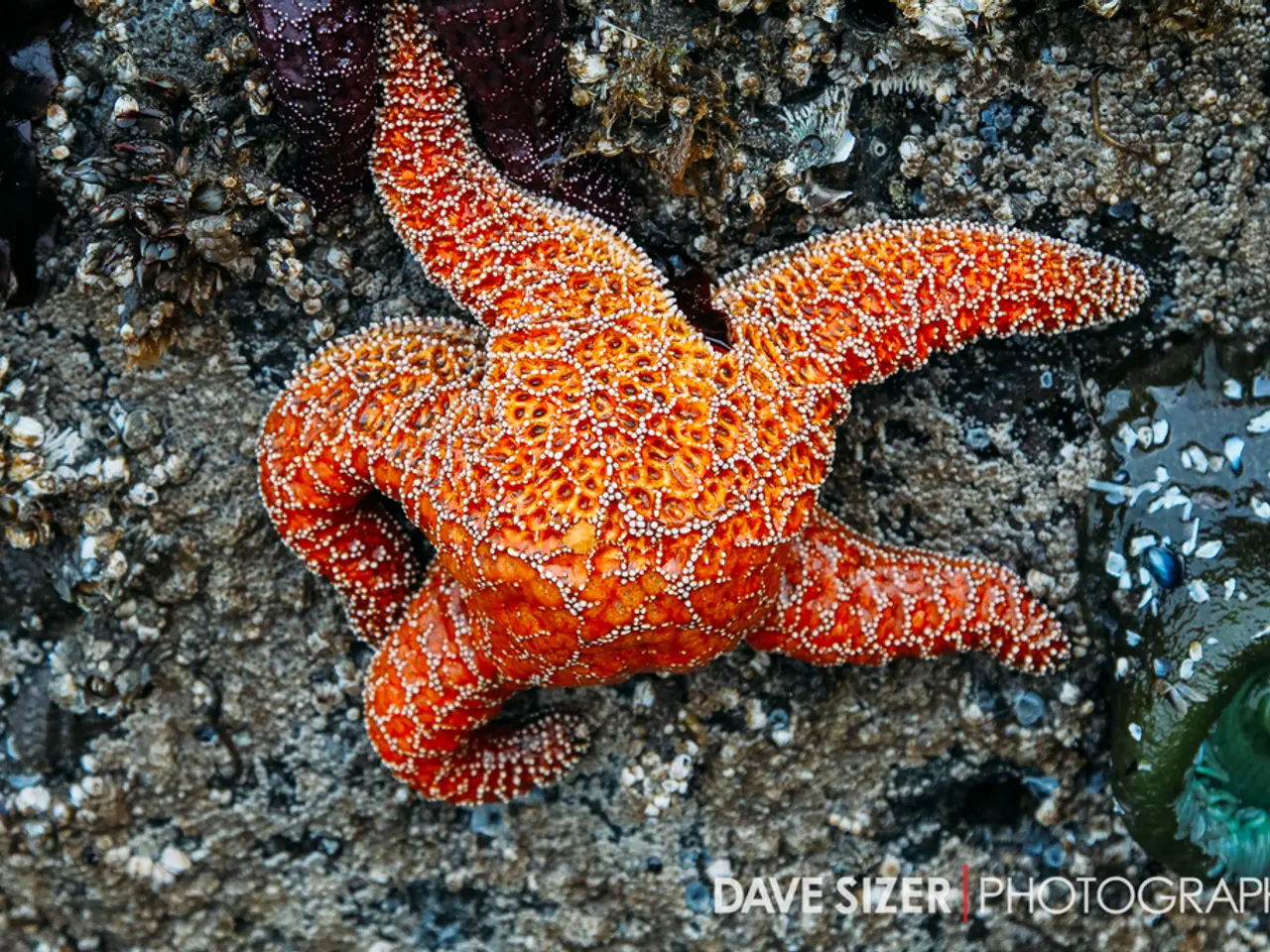Arctic's Hidden Apex Predator Unveiled: Not a Mammal, but a Surprising Contender
Predatory Sea Stars Unveiled as Apex Predators in the Arctic Benthic Ecosystem
In a groundbreaking study published in the journal Ecology, researchers from Laval University in Canada have revealed that sea stars, particularly those from the Pterasteridae family, serve as crucial apex predators in the Arctic's benthic food web.
This discovery has shifted the perspective on the Arctic's apex predators dramatically, moving the spotlight from the polar bear to these humble marine creatures. The sea star, not a mammal, may be equally or more powerful in the Arctic food web.
Sea stars play a significant role in regulating community structure and maintaining ecosystem balance. Their predation influences the population dynamics of benthic prey species such as sea urchins and bivalves, which in turn affects the abundance and distribution of macroalgal communities.
In the Arctic benthos, sea stars prey on organisms like the sea urchin Sterechinus neumayeri and benthic clams such as Charna pallucida. By controlling sea urchin populations, predatory sea stars help prevent overgrazing of macroalgae, such as Phyllophora antarctica and Iridaea cordata. This predation is vital because sea urchins, if unchecked, can cause extensive macroalgal decline through overgrazing, thus altering habitat structure and benthic biodiversity.
The diet of predator sea stars consists of organisms that are typically too large for most other predators. They are opportunistic feeders, both hunting for prey and scavenging dead organisms that sink to the ocean floor.
The benthic zone, often overlooked, has its own rich and dynamic food web, which includes top predators like sea stars. The health of this food web is crucial to the overall health of the Arctic ecosystem. Understanding the role of benthic predators like sea stars allows us to see how the Arctic ecosystem functions as a whole.
Changes in the abundance or behavior of sea stars could have ripple effects throughout the entire Arctic food web. The Arctic food web is more complex than previously thought, with sea stars occupying a role as apex predators in the seafloor ecosystems.
The study was conducted by analyzing the food webs in the waters around Southampton Island. The revelation that sea stars can be considered apex predators has important implications for marine science and conservation.
The humble sea star, not a creature most would expect to find at the top of the Arctic food chain, is now recognized as a key player in the Arctic's delicate ecosystem. Its unique and powerful niche allows it to occupy a role as an apex predator, similar to how polar bears rely on whale carcasses to get through harsh winters.
References: [1] Goddard, W. A., & Connell, S. D. (2021). Sea stars as apex predators in the Arctic benthic ecosystem. Ecology, 102(6), e03573. [4] Goddard, W. A. (2021). The role of sea stars in the Arctic benthic food web: A review. Marine Ecology Progress Series, 664, 1-15.
The new research highlights the significance of sea stars, particularly from the Pterasteridae family, in the health-and-wellness of the Arctic's seafloor ecosystem, as they act as apex predators in the Arctic benthic food web and maintain balance (Ecology, 2021). This discoveries in environmental-science, focusing on the role of sea stars, offers insights into how the Arctic ecosystem functions as a whole and emphasizes the importance of understanding mental-health within the complex Arctic food web (Marine Ecology Progress Series, 2021).




